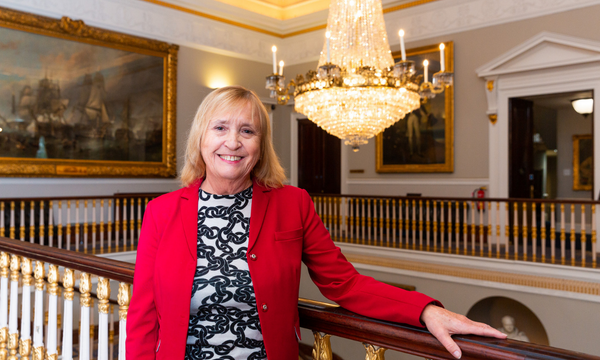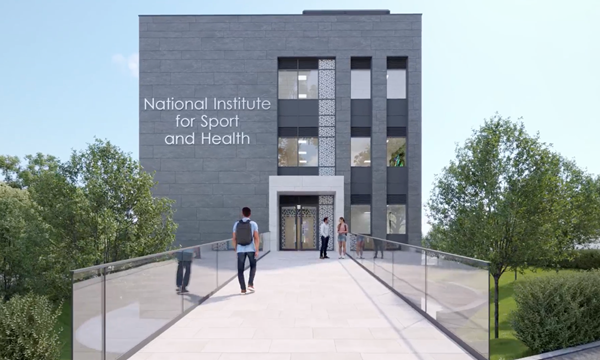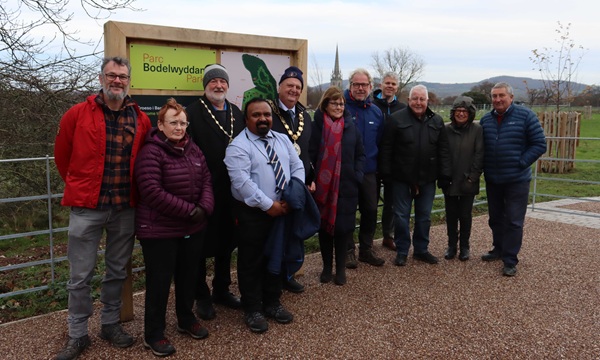Written By:
 By Joanna Seymour
By Joanna Seymour
Director of Development
Warm Wales
____________________________________________________________________________________________________________________________
According to data from Public Health Wales, health conditions that arise from poor housing and fuel poverty cost the NHS upwards of £95m every year, and the wider economy more than £1bn. It also increases individuals’ likelihood of developing long term conditions. As we approach the winter period, these pressures become more intense, as does the risk to individuals’ health and wellbeing.
We need to talk about the home and its impact on health
Imagine a person goes to their GP because their asthma has become unmanageable. In the appointment, they will likely be asked if they have increased their exercise, are on new medicines, or have any other respiratory conditions. However, they are unlikely to be asked if their home is damp or mouldy. This is despite 50% of people with asthma commenting that their condition worsens when they are in an environment with damp or mould.
Obviously, there is little a GP can do to address these factors. But, if the damp is not resolved, that person could develop further health problems that result in repeat requests to a healthcare professional – most often a GP – creating additional (but avoidable) demand on services.
Social prescribing’s role
Sometimes, people are living with damp and mould in their homes because they are experiencing fuel poverty and are struggling to pay their energy bills. As the cost of living crisis continues and winter looms, rates of fuel poverty are going to increase, as will the risk to people’s health and wellbeing. Warm Wales provides free support and advice to reduce fuel poverty and promote affordable warmth. We have first-hand experience of how social prescribing – which enables health and care professionals to connect people with non-clinical interventions to improve health – plays an important role in tackling these challenges.
We have been using social prescribing at Warm Wales since 2020 and witnessed it have an incredible impact on people’s health outcomes. In fact, 93% of our service users reported a reduction in anxiety about their energy bills after accessing our support services. It has enabled us to have more conversations about the home, understand its impact on health and efficiently provide people with the tools they need to tackle fuel poverty.
Historically, we managed our community referrals on a standard customer relationship management (CRM) system. This enabled us to monitor the support individuals received, such as help setting up energy bill payments, or if they had been connected with their housing association to address mould in their home. However, it did not highlight the impact this was having.
With our digital social prescribing system, we have been able to take a more holistic approach. The solution – Access Elemental – has radically changed the way we deliver support and made our jobs as link workers far more streamlined, providing us with reassurance that we are doing right by the people that need our help.
For example, we have been able to understand the factors that impact a person’s ability to pay their energy bills, and how not being able to pay them can affect someone’s health. By having more conversations about these interdependencies – which Access Elemental makes it easier to do by enabling robust reporting on referrals and outcomes – we have been able to provide more effective, personalised support to help people take control of their situation and improve their wellbeing. One service user said the support they receive helped to ease their depression and reduce their anxiety, as they knew they could afford their energy bill.
Helping in this way, we also reduce the likelihood of them needing to visit their GP, which eases the burden on stretched healthcare services.
Providing holistic support
Recently we partnered with Newport City Homes (NCH), a housing association in South Wales, and have been able to put people on referral pathways to link them to the relevant services they provide. Being cloud based, Access Elemental makes this a smooth, easy process, seamlessly integrating with NCH’s system to suggest the best interventions. Crucially, we can then record wellbeing scores to determine the impact of the intervention, helping us to offer more tailored support in the future.
Being able to nurture these partnerships has been crucial to delivering the best services for people seeking help. As we approach winter, there is uncertainty about what other help might be available to those experiencing or at risk of fuel poverty. Having these streamlined referral pathways in place is vital if we are to continue safeguarding against these inevitable, harsh pressures.
To further enhance this support, we have also used the digital solution to establish a self-referral portal, enabling people to reach out to us directly. It is helping to put the control back into the hands of citizens, helping them to act before winter sets in and the associated pressures take hold.
We realised that not everyone will have the resources to do this, and often, those experiencing or at risk of fuel poverty may suffer digital poverty too. So, we continue to engage in community outreach programs to access these vulnerable groups and ensure no one slips through the net.
Health is not a tick box exercise
Using social prescribing technology enables us to support more people, in a more personalised way. It helps people to feel more in control of their lives and improves their health and wellbeing. Everyone deserves to live in a safe, warm home, and helping to make this happen should not be a tick box exercise. Our referrals process is efficient, effective, and holistic, makes sure we are connecting people with the support that is best suited to them, and assures us we have provided the support people need to live healthier, happier lives.
We have made it possible for there to be more conversations about the home and its impact on health, preventing serious problems from developing. Health starts at home, and by enabling these earlier interventions, and encouraging conversations, we can keep people well and away from GP surgeries. However, it is important to act now, before the pressures of winter firmly take grip.











